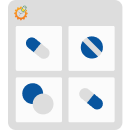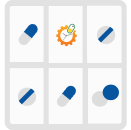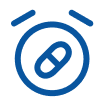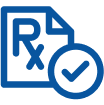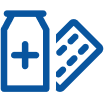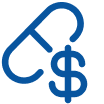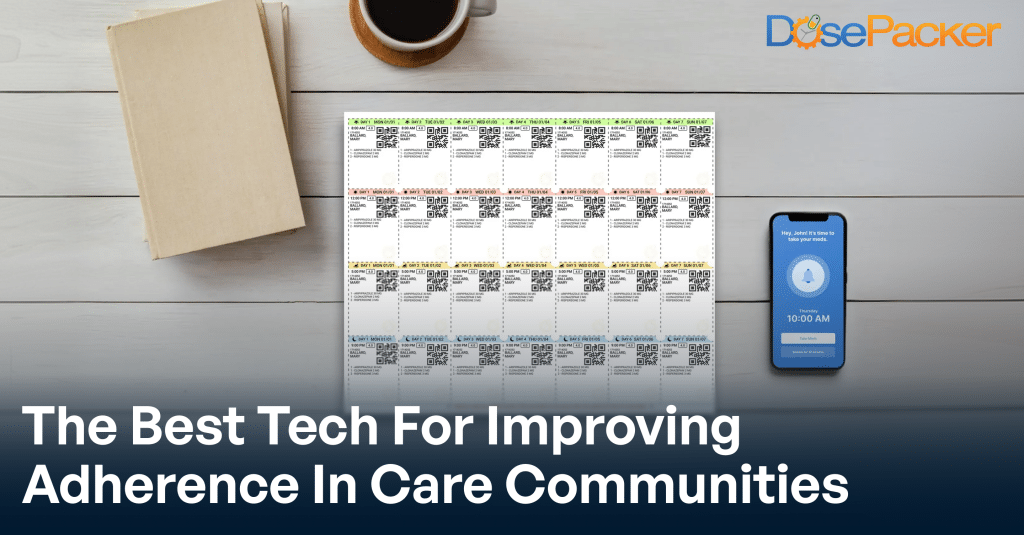Unlock the latest in medication management technology and grow your care community with us.

No one likes to start their day with an array of pill bottles waiting for them on their kitchen counter. Especially when the number of medications is high, and all have different intake directions. Some medications must be taken before your meals, others after — three pills in the morning, two at noon, and another four before bed.
What should be a simple task instead is riddled with confusion and anxiety!
Millions worldwide face the daily challenge of keeping track of complex medication regimens. As the number of medications increases, so does the likelihood of errors like taking the wrong dose or missing critical medicines altogether.
Navigating intricate regimens shouldn’t be an uphill battle. And thankfully, there are practical, proven strategies that can help. DosePacker prides itself on being the solution to your medication management difficulties. Our products can assist in the following:
- Create a foolproof organizational system
- Use technology to your advantage
- Craft a path to better adherence
- Streamline your medication schedule
- Develop consistent daily routines that stick
Take the first step toward making your medication management simpler, safer, and more successful.
Experience the DosePacker Difference
What Is a Medication Regimen?
Medication regimens detail how and when to take prescribed medications to achieve the best possible health outcomes. Think of it as your personalized roadmap to better health, complete with specifications like:
- Medication names and purposes
- The exact dosages for each medication
- Specific timing requirements (e.g., “with meals” or “before bedtime”)
- Special instructions (such as intervals between two medicines so that they don’t interact with each other)
- Duration of treatment
- Any necessary monitoring requirements
Managing Medication Routines Can Be Complex
The complexity of medication regimens often stems from various challenges that patients face daily. Here’s what makes managing medications particularly challenging:
Lack Of A Care Coordinator
Several patients, especially seniors, do not have a point person overseeing and coordinating their medications. This can be a significant contributor to the increased complexity of medication routines. It can lead to miscommunication between the primary health care provider, specialist, pharmacist, and the patient.
Inadequate Collaboration
In addition to the absence of a care coordinator, research shows that there is a massive gap in collaboration between providers and pharmacies. This happens when the patient is consulting multiple healthcare providers or getting their prescriptions filled from multiple pharmacies. Patients may receive contradicting instructions about medications to be consumed as well as the medication schedule. They are bound to be confused with such complex information.
Vulnerability Of Patients
Patients may face multiple difficulties, one of them being a language barrier. Prescriptions are usually written in English, making it challenging for patients with a different native language to follow the instructions. Next, cognitive conditions like dementia make medication adherence a pretty high hurdle for patients.
All these factors often lead to medication errors. A study observed that a patient taking the wrong drug was the most common error (54.5%), followed by taking the wrong dose (31.8%) and taking the medicine at the wrong time (13.6).
Wondering how to navigate these complex medication regimens? Here are a few practical options that can help.
Strategies to Simplify Complex Medication Regimens
Now that we have a grasp of how challenging managing complex medication regimens can be, let’s discuss the five practical strategies to make your life easier:
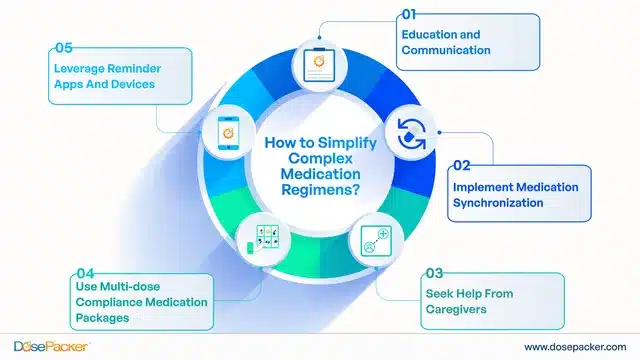
Education and Communication
Clear understanding and open communication form the foundation of successful medication management. Essential Communication Points:
- Regularly review your medication list with your healthcare provider
- Ask questions about:
- Why each medication is necessary
- Potential side effects
- Drug interactions
- Best times to take each medication
- What to do if you miss a dose
Implement Medication Synchronization
Aligning refill dates can make a world of difference. In medication synchronization, you coordinate with your pharmacists so that you will receive your prescription refills each month on the same day.
Key Benefits:
- Fewer pharmacy visits
- Reduced chance of running out of medications
- Better coordination with your healthcare team
- Simplified budget planning for prescription costs
Seek Help From Caregivers
Enlisting the help of family members or caregivers can provide additional support in managing medication regimens. Caregivers can assist by:
- Assist with organizing medications
- Provide reminders
- Attend medical appointments
- Monitor for side effects
- Help with pharmacy visits
Use Multi-dose Compliance Medication Packages
Multi-dose compliance packaging organizes all the prescribed meds in a single pack, according to hours of administration. This eliminates the struggle of sorting medications and flipping through multiple prescriptions to check which ones need to be administered. The segregated compartments also make administering the right medicine at the right time easier. Research shows that using multi-dose compliance packs can improve medication adherence in patients.
Leverage Reminder Apps And Devices
Various apps and devices can remind patients when to take their medications or refill prescriptions to ensure they both adhere to and comply with their medications. DosePacker’s smart medication reminder device -DoseMinder, is one such example. It offers reminders in the form of audio alerts, highlights the dose to be administered, as well as takes video confirmation of medication intake. Such devices can help simplify medication routines exponentially.
Not just that, DosePacker’s MyDoses app also sends reminder notifications to patients and caregivers. It is a comprehensive app that can help manage multiple prescriptions and also schedule refill requests to deliver patients’ medications on time.
These strategies work best when combined and tailored to your specific needs. Start with one approach that feels most manageable and gradually incorporate others as you become more comfortable with your system.
In A Nutshell
Simplifying complex medication regimens isn’t just about following a schedule—it’s about investing in your health and well-being. Start with one strategy that resonates with you, and gradually build your confidence and routine. The key is finding a system that suits your unique needs and lifestyle.
With the right tools, support, and systems, you can turn what seems like an overwhelming task into a manageable part of your daily routine. Contact us today!
